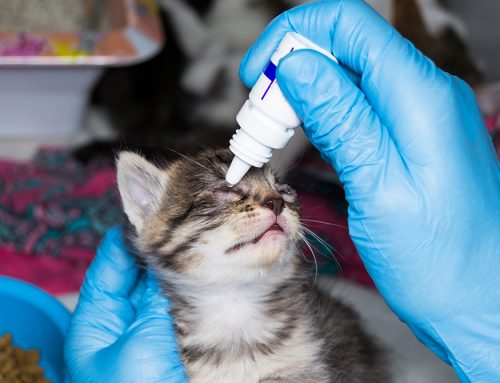What is Cushing’s Disease?
Cushing’s Disease, also known as hyperadrenocorticism, is a condition that occurs when a pet’s body produces an excessive amount of cortisol, a hormone that helps regulate various bodily functions, including metabolism, immune response, and stress. While cortisol is essential for health, too much of it can lead to serious health issues.
Causes of Cushing’s Disease
Cushing’s Disease is most commonly caused by a tumor in the pituitary gland, located at the base of the brain. This type of Cushing’s is called pituitary-dependent hyperadrenocorticism (PDH). Less commonly, Cushing’s can be caused by a tumor in the adrenal glands, known as adrenal-dependent hyperadrenocorticism (ADH). In some cases, prolonged use of corticosteroid medications can also lead to a condition similar to Cushing’s Disease.
Signs and Symptoms
Pets with Cushing’s Disease may exhibit a variety of symptoms, including:
- Increased thirst and urination
- Increased appetite
- Panting
- Abdominal enlargement (“pot-bellied” appearance)
- Thinning skin and hair loss
- Lethargy and weakness
- Muscle wasting
- Recurrent infections
Diagnosis
Diagnosing Cushing’s Disease typically involves a combination of physical examination, blood tests, and specialized tests such as the ACTH stimulation test or the low-dose dexamethasone suppression test. Imaging studies like ultrasound or MRI may also be used to identify tumors in the adrenal glands or pituitary gland.
Treatment Options
Treatment for Cushing’s Disease depends on the underlying cause. If the disease is due to a pituitary tumor, medications like trilostane or mitotane may be prescribed to help control cortisol production. In cases where an adrenal tumor is present, surgical removal of the tumor may be recommended.
In pets where Cushing’s Disease is caused by long-term corticosteroid use, gradually reducing the medication under veterinary supervision may help alleviate symptoms.
Prognosis and Management
With proper treatment and management, many pets with Cushing’s Disease can lead a good quality of life. Regular veterinary check-ups, monitoring cortisol levels, and adjusting treatment as needed are essential parts of managing this condition
Mission Veterinary Clinic: Here to Help
At Mission Veterinary Clinic, we understand how concerning it can be to see your pet experiencing health issues like Cushing’s Disease. Our team is here to provide expert care and support for your pet’s health needs. If you suspect your pet may have Cushing’s Disease or if you’re concerned about any changes in their behavior or health, visit us today.
Location and Contact Information:
- Address: 16915 San Fernando Mission Blvd, Granada Hills, CA 91344
- Phone: 818-363-8143
- Walk-ins only; no appointments required.










Leave A Comment